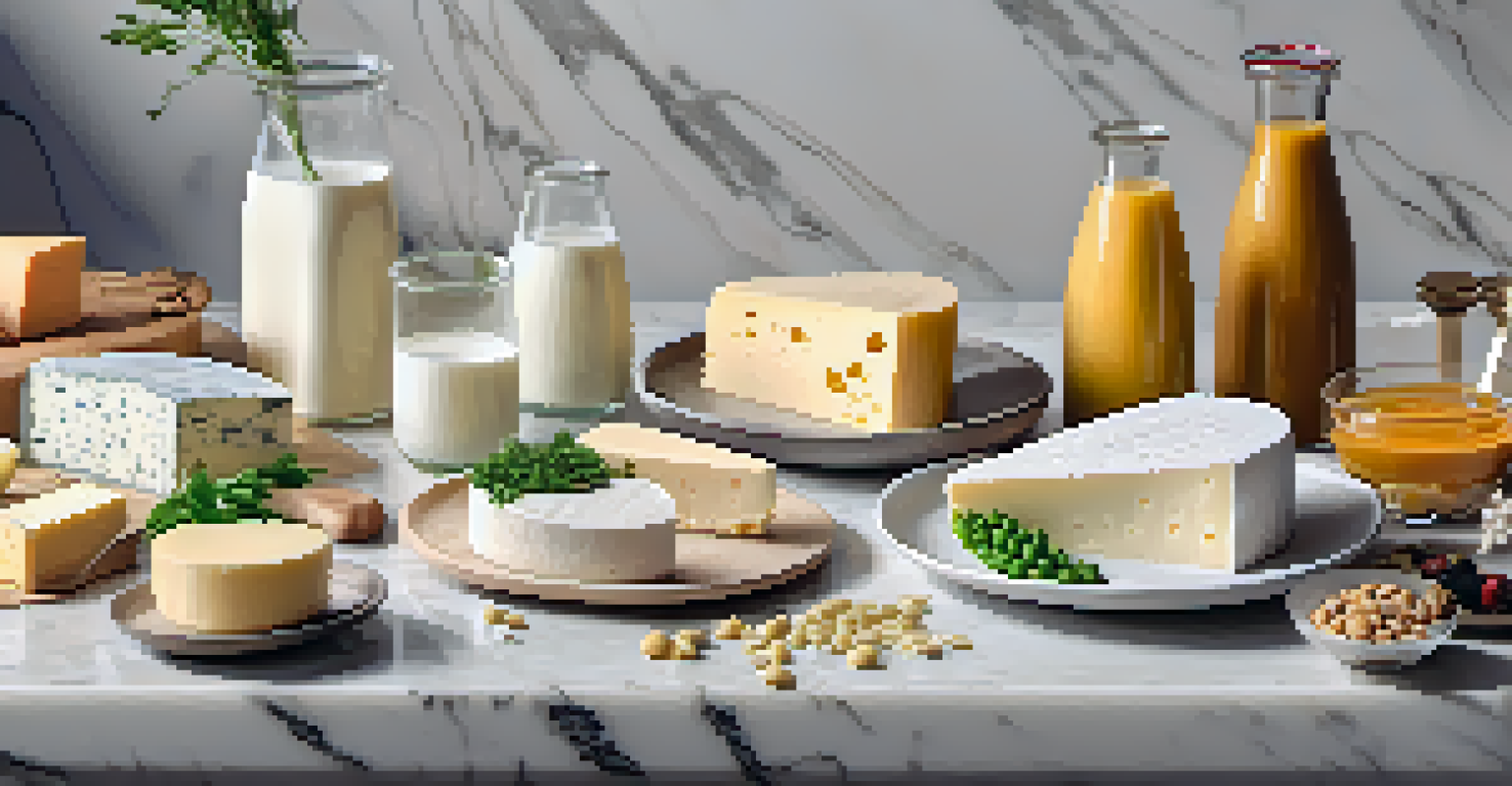Top 10 Innovative Vegetarian Food Startups to Watch in 2023

Revolutionizing Taste: Plant-Based Meat Alternatives
In 2023, plant-based meat alternatives are more popular than ever, with startups like Beyond Meat and Impossible Foods leading the charge. These companies are not just creating products that mimic meat; they’re innovating flavors and textures that appeal to both vegetarians and meat-lovers alike. For instance, the new plant-based burger from Beyond Meat is designed to replicate the juicy experience of a beef burger while being completely cruelty-free.
The food we eat can either be the safest and most powerful form of medicine or the slowest form of poison.
The growing emphasis on sustainability is driving these innovations, as consumers are increasingly concerned about the environmental impact of their food choices. Startups are focusing on sourcing ingredients that are not only delicious but also environmentally friendly. This shift is evident in the use of pea protein and other sustainable materials that reduce the carbon footprint compared to traditional meat production.
Additionally, these innovative products are making their way into mainstream restaurants and fast-food chains, making vegetarian options more accessible. With each bite, consumers are not just enjoying a meal; they’re contributing to a larger movement towards a healthier planet.
Plant-Powered Snacks: A New Wave of Healthy Munchies
Healthy snacking is on the rise, and startups like Hippeas and Biena are at the forefront of this trend. These companies are crafting snacks that are not only tasty but also packed with nutrients, using ingredients like chickpeas and lentils. For example, Hippeas offers a range of organic chickpea puffs that are not only crunchy but also high in protein and fiber.

The emphasis on clean eating has consumers demanding snacks that are free from artificial ingredients and preservatives. This has led to a surge in products that use whole food ingredients, appealing to health-conscious individuals. Biena's roasted chickpeas, for example, provide a satisfying crunch with a healthy twist, making them a popular choice for those looking to snack guilt-free.
Plant-Based Meat Is Here to Stay
Innovative companies like Beyond Meat and Impossible Foods are reshaping the food landscape with flavorful, cruelty-free meat alternatives.
Moreover, these snacks are often gluten-free and vegan, catering to a diverse range of dietary preferences. By focusing on flavor and health, these startups are redefining what it means to snack, proving that healthy choices can also be delicious.
Dairy-Free Delights: The Rise of Alternative Dairy Products
The dairy-free trend is soaring, with startups like Oatly and Ripple Foods creating alternatives that are both rich in flavor and nutrition. Oatly, for instance, has made waves with its oat milk, which boasts a creamy texture that rivals traditional dairy milk. This product has quickly gained popularity in coffee shops, becoming a favorite for lattes and cappuccinos.
Sustainability is no longer about doing less harm. It’s about doing more good.
Many consumers are looking for dairy alternatives due to lactose intolerance or ethical concerns regarding animal welfare. Ripple Foods addresses this need with its pea-based milk, which is not only lactose-free but also offers a protein boost. This innovative approach to dairy substitutes is changing the way people think about plant-based options.
As these products become more mainstream, they are also inspiring new recipes and culinary creations. From creamy cheese spreads to rich ice creams, the possibilities are endless for those who want to enjoy dairy-like flavors without the dairy.
Fermented Foods: The Health Benefits of Probiotics
Fermented foods are making a comeback, and startups like Kimchi Queen and Good Culture are leading the charge. These companies are harnessing the power of probiotics to create delicious and gut-friendly options. For instance, Kimchi Queen offers a variety of authentic kimchi products that not only taste great but also promote digestive health.
The interest in gut health has driven consumers to seek out foods that support their microbiome. Fermented foods are rich in live cultures, which can enhance digestion and boost immunity. Good Culture's probiotic-rich cottage cheese is a perfect example, providing a tasty way to incorporate beneficial bacteria into one's diet.
Healthy Snacks Are Gaining Popularity
Startups such as Hippeas and Biena are redefining snacking by offering nutritious, tasty options made from whole food ingredients.
Moreover, the versatility of fermented foods means they can be incorporated into a variety of dishes. Whether it's adding kimchi to tacos or enjoying a dollop of probiotic yogurt, these foods are not just trendy; they’re beneficial for overall health and well-being.
Veggie-Packed Meal Kits: Convenience Meets Health
Meal kits have transformed the way we cook, and startups like Green Chef and Purple Carrot are focusing on vegetarian options. These companies provide pre-portioned ingredients and simple recipes, making it easier for busy individuals to prepare healthy meals at home. Imagine coming home to a box filled with fresh veggies, spices, and all the essentials to whip up a delicious plant-based dinner.
The convenience of meal kits caters to those who want to eat healthy but may lack the time or knowledge to cook from scratch. With easy-to-follow instructions, even novice cooks can create gourmet meals in no time. Purple Carrot, for example, offers a variety of recipes that showcase the flavors of seasonal produce, inspiring customers to explore new culinary horizons.
Additionally, these meal kits often highlight the importance of sustainability by using organic and locally sourced ingredients. By choosing plant-based meal kits, consumers not only nourish their bodies but also support eco-friendly practices.
Innovative Sauces and Condiments: Elevating Plant-Based Meals
Sauces and condiments are essential in any kitchen, and startups like The Coconut Cult and Sir Kensington's are creating innovative options that enhance plant-based meals. For instance, The Coconut Cult offers a dairy-free yogurt that can serve as a base for dressings or dips, adding a creamy texture to various dishes. This versatility allows home cooks to explore countless flavor combinations.
The demand for bold flavors has led to the rise of unique sauces that cater to vegetarian diets. Sir Kensington's, known for its gourmet condiments, has introduced vegan mayonnaise that rivals traditional versions in taste and texture. These products make it easier for consumers to enjoy flavorful meals without compromising their dietary choices.
Sustainable Practices Drive Change
Many food startups are adopting eco-friendly packaging and sourcing to meet consumer demand for sustainability in food choices.
Moreover, these innovative condiments often focus on quality ingredients without artificial additives. By elevating everyday meals with delicious sauces and dressings, these startups are making plant-based eating more enjoyable and accessible.
Sustainable Packaging: A New Frontier for Food Startups
As environmental concerns grow, many food startups are prioritizing sustainable packaging solutions. Companies like Loliware and RePack are leading the way by creating eco-friendly options that reduce plastic waste. For example, Loliware offers edible cups that not only serve their purpose but can also be consumed, making for a fun and sustainable dining experience.
The push for sustainability is resonating with consumers who are increasingly making choices based on environmental impact. RePack's reusable packaging system encourages customers to return their packaging for reuse, promoting a circular economy that benefits both businesses and the planet. This innovative approach not only reduces waste but also fosters brand loyalty among eco-conscious consumers.

By integrating sustainable practices into their business models, these startups are setting a standard for the food industry. As more consumers become aware of their ecological footprint, they are more likely to support brands that align with their values, driving the demand for sustainable packaging solutions.